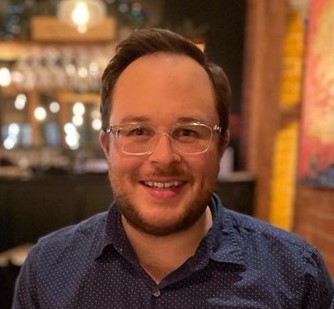
Q: My grandfather has started getting palliative care over the past few months. We were all quite scared at first because we didn’t know what to expect. Soon, we would learn that it was nothing to fear at all. It has already helped my entire family a lot! We are still learning about things, but I was surprised to find out that a pharmacist is part of his care team. Can you talk about palliative care and explain how pharmacists can help?
Erin Thompson: Thank you for this question and for sharing your family’s story about palliative care. I have asked my colleague, Dr. Bradley Adams, a pharmacist at the Dr. Georges-L.-Dumont University Hospital Centre in Moncton, to share his expertise with us this week on the pharmacist’s role in palliative care:

Many people think that palliative care is only for the end of life, which can bring up some very heavy feelings. As you have pointed out, palliative care can help people long before that time, and it supports not only the person who is sick, but their family and their caregivers as well.
Palliative care is a health plan that involves a wide range of people, including the patient, their family, their caregivers and the health-care team. The main goal is to help someone feel better as they live with a serious illness. While palliative care is not meant to cure the sickness, it can provide important comfort for both the patient and their loved ones, as it seems you have witnessed firsthand. In my opinion, instead of closing doors, palliative care truly is an opportunity to open new ones.
Pharmacy teams, including pharmacists, pharmacy technicians, and pharmacy assistants, are involved in palliative care on the front lines and behind the scenes, medicine-related and not. In the area of palliative care, we often help with many things ranging from pain control to reducing nausea to easing anxiety and depression.
Pharmacists and their teams are easily accessible resources located right in your neighbourhood who help direct our patients and their caregivers to even more care than we can provide. If we don’t have the solution, we often know someone who does. Never hesitate to reach out.
Every health-care professional, from nurses to physicians to dietitians to physiotherapists to speech pathologists to psychologists to occupational therapists (and the list truly does go on) have very special roles in palliative care. With such unique skills, research shows time and time again that our patients receive better care when we all work together.
Because pharmacists have in-depth education and experience focusing on how medications work along with their risks and benefits, we are in a special position to help make plans to stop medicines that might cause more harm than good. Often called “deprescribing,” this is another area in which pharmacists are proud to play an important role. In palliative care, for example, stopping a medicine may be the best way for a patient to sleep well at night, allowing them to live their happiest days with their family.
While you might connect your pharmacist to the times when you start a medication, we also play a big role in helping you stop them, too.
If you or a family member have started getting palliative care, always feel free to reach out to your pharmacist. We are willing and able to help.
Dr. Bradley Adams (BScPharm, PharmD) is a graduate of the Dalhousie University College of Pharmacy and the Memorial University of Newfoundland School of Pharmacy. He is primarily a hospital pharmacist practicing at the Dr. Georges-L.-Dumont University Hospital Centre in Moncton, NB. His opinions expressed in this column are published for educational and informational purposes only, and are not intended as a diagnosis, treatment or as a substitute for professional medical advice, diagnosis or treatment.